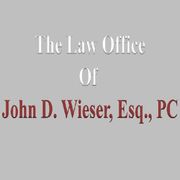
Both chapter 7 and 13 bankruptcies are designed to help people get their finances back on solid ground. Chapter 7 bankruptcy helps discharge secured debt, while those with excessive unsecured debt often file for chapter 13. Understanding the differences between these broad categories can help you choose the best option for your situation.
What Is Secured Debt?
 Any financial obligation linked to a property you own is considered a secured debt. The property is known as the “collateral,” and can be seized by the lender if you default on the payments. Auto loans and mortgages are common examples, along with some store charges. A personal loan can also be a secured debt if the lender requires you to pledge a car or other valuable item as collateral.
Any financial obligation linked to a property you own is considered a secured debt. The property is known as the “collateral,” and can be seized by the lender if you default on the payments. Auto loans and mortgages are common examples, along with some store charges. A personal loan can also be a secured debt if the lender requires you to pledge a car or other valuable item as collateral.
Liens and legal judgments are also considered secured debt, since the other party has a legal right to seize your property. This includes tax liens, mechanic’s liens, and any civil court judgment in favor of a lender or other party.
What Is Unsecured Debt?
Most consumer credit programs are unsecured, which means lenders can’t immediately seize your property if you default. Credit cards, lines of credit, personal loans, and most store charge accounts are considered unsecured debt. This category also includes student loans, medical and utility bills, and outstanding gym memberships.
Whether a debt is secured or not isn’t always obvious. For instance, a credit card lender can file a lawsuit and win a judgment against you, giving them the right to put a lien on your property. When this happens, your credit card balance becomes a secured debt. If you’re trying to understand which debts will be covered by your bankruptcy claim, consult your attorney.
Filing for bankruptcy can be overwhelming and frustrating, which is why you need a compassionate lawyer with the experience to guide you through the process. John D. Wieser Esq., PC is dedicated to providing Rochester, NY, borrowers with the personalized legal attention they need to get fresh starts. Visit his website to learn how he will help, or call (585) 328-0660 to schedule a consultation.
About the Business
Have a question? Ask the experts!
Send your question

